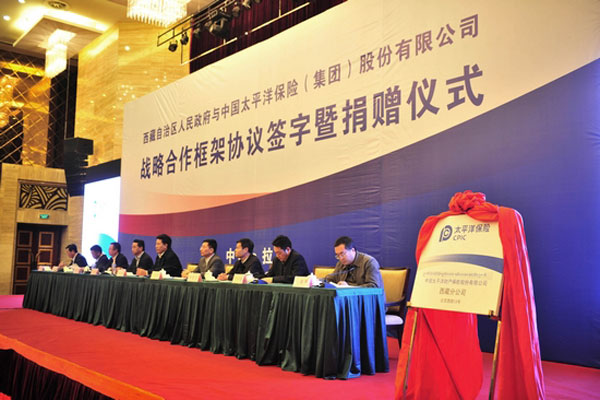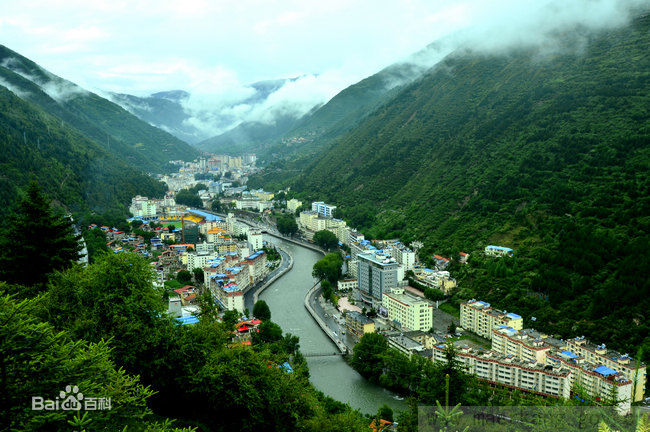Guide for the elderly travelling to Tibet
Physical examination is absolutely essential
Before senior citizens travel to Tibet, it is absolutely necessary to go to the hospital for a comprehensive physical examination to ensure that there are no impediments to safe travel.
Medical experts believe that because the bodily functions of the elderly gradually deteriorate, the immune system and the body's ability to respond to special environments somewhat decline, so the elderly are easier to catch cold, and even easier to suffer from acute elevation sicknesses, which are also difficult to combat.
Consequently, the following types of individuals should take note (particularly those senior citizens who have these types of illnesses would have difficulties going to Tibet):
- Those who have any kind of organic cardiac illness
- Those who have obvious arrhythmia
- Those who have high blood pressure
- Those who have any kind of blood diseases
- Those who have cerebrovascular disease
- Those who have chronic respiratory system illness
- Those who have moderate to severe illnesses that obstruct the lungs
- Those who have uncontrolled or uncontrollable diabetes
- Those who have hysteria, epilepsy, or other kinds of psychological illnesses
- Those who once suffered from diagnosis to check for elevation induced respiratory edema, elevation induced cerebral edema, significant elevation induced high blood pressure, elevation induced cardiac illness, and elevation induced high red blood cell count.
In the presence of a serious cold, respiratory infection, or any kind of sub-par health situation, it is best to put off traveling to Tibet prior to a full recovery.
Prepare necessary medicines
Medicines to prevent elevation sickness: Hongjingtian.
Supplementary options: Glucose
It is advisable to also bring along common cold medicine, antidiarrheals, pain relievers, and immunity boosters. External medical supplies that should be brought include: gauze, bandages, band-aids, rubbing alcohol, menthol balm, and safflower oil.
A few days prior to going to Tibet, senior citizens need to conserve their strength and energy and be sure to get sufficient rest.
Usually, taking Rhodiola rosea (a kind of high altitutde sickness alleviators) about three days prior to traveling to Tibet could greatly alleviate the effects of high altitude sickness. Senior citizens should begin taking medication up to a week prior to travelling. It is also recommended to take powdered grape sugar for a week in order to avoid the effects of high altitude sickness.
Senior citizens making their way to Tibet should first go to Nyingchi City in the southern part of Tibet and Lhoka Prefecture for a period of time. The elevation there is relatively low and vegetation is very ubiquitous, so oxygen levels are sufficient.
For senior citizens 60 years old or older, we recommend to avoid flying directly to Tibet. Because of the high elevation, senior citizens can very easily have adverse reactions, including: anoxia, tinnitus, dizziness, heart tremors, and other ailments. Individuals with weak constitutions can also faint due to the elevation.
Senior citizens particularly need to be able to sufficiently rest in their hotel rooms in order to adjust to the new environment. The climate of the high elevation is very dry, and it is necessary to increase water intake.
In Tibet, the temperature difference between night and day is drastic, so senior citizens need to be sure they dress warmto avoid from catching cold. If an elderly individual in your travel party does have a reaction to the high altitude, there is no need to panic. Be sure to rest and seek medical consultation to prevent the condition from developing more serious results.
Your Comment
Name E-mailRelated News
-
;
-
-

-
Swans swim in Qinghai Lake
Swans swim in Qinghai Lake in northwest China's Qinghai Province.
-
-
-

-
Tibet insures urban residents against serious illness
Urban residents in Tibet are now covered by a serious illness insurance.
-
-
-

-
China redesignates another Tibetan county as city
The Tibetan-Qiang Autonomous Prefecture of Aba announced that Barkam County would be reclassified as a city.
-











